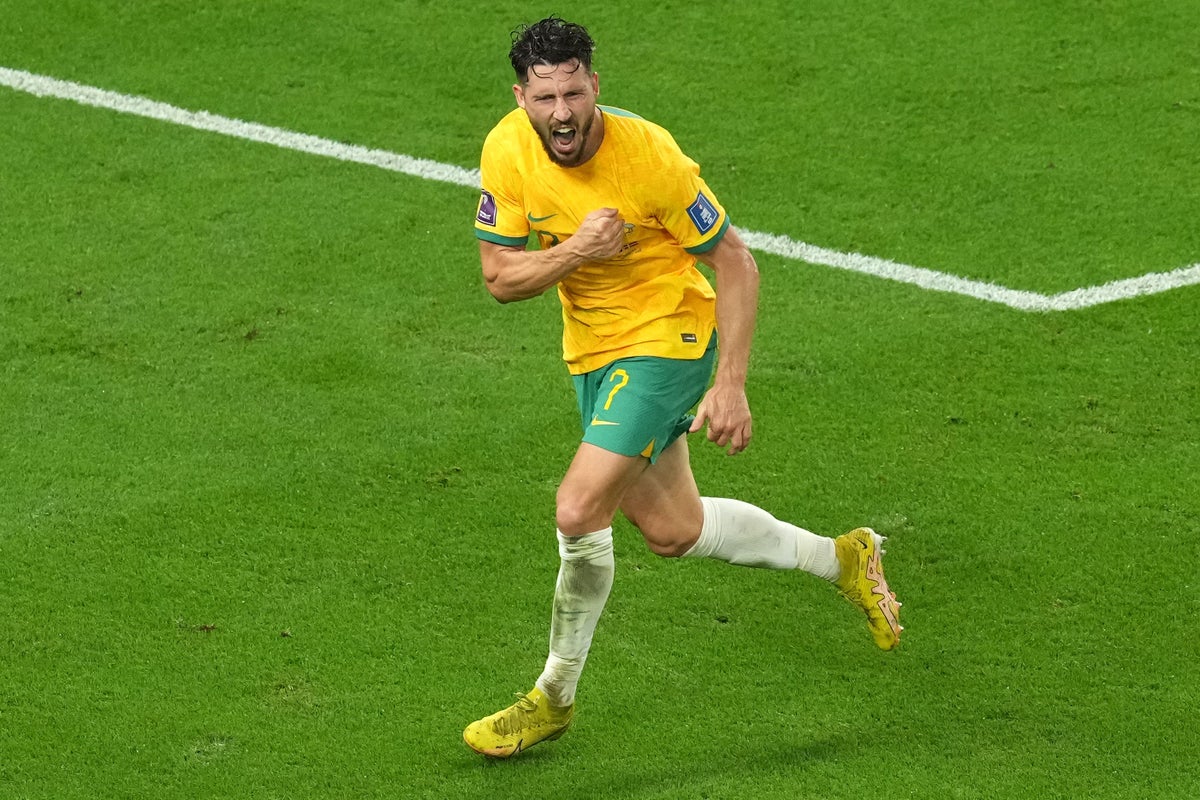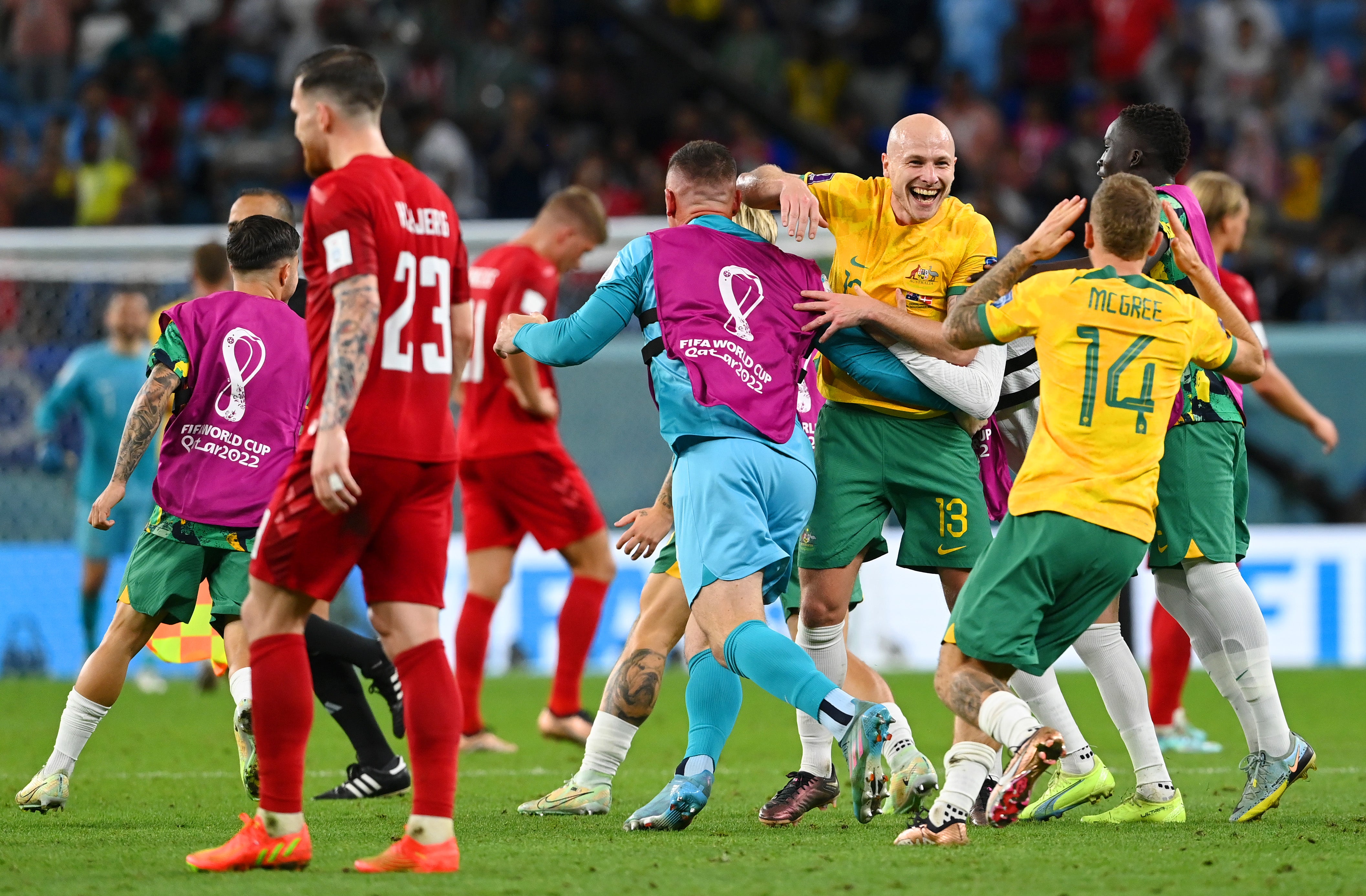
There may have been bigger shocks at this World Cup but Australia became the first underdog to strike a knockout blow against one of the favourites. Ranked 10th in the world, Denmark contrived to finish fourth in a group containing the Socceroos and Tunisia. The side who led in the Euro 2020 semi-final were never in front in this World Cup and go out embarrassingly early, with one point and one goal to show for their trip to Qatar.
Yet if they are underachievers, Australia’s endearing overachievers advance fair and square. They came to Qatar as one of the least fancied teams and a country with just two World Cup wins to their name.
They have doubled that tally in their last two games and progress level on points with France. That may sound surreal but this was one of the great days in their footballing history. They earned their place in the World Cup in Doha, beating Peru in a play-off, and now they have still more fond memories of Qatar.
Australia’s consecutive clean sheets are testament to the excellence of Harry Souttar and the organisation Graham Arnold has instilled.
It has been augmented by the kind of clinical touch Denmark were lacking; first from Mitchell Duke against Tunisia, then Mathew Leckie at the Al Janoub Stadium. Each has etched his name into Socceroo folklore and the Melbourne City winger produced a wonderful goal, out of keeping with a low-calibre game.
Riley McGree, who was part striker, part midfielder, sent Leckie scurrying clear. He twisted and turned past Andreas Christensen and angled a shot beyond Kasper Schmeichel.
Denmark produced a flat display to extend their winless streak in World Cups to six. Their lone goal this World Cup has come from a central defender, in Christensen, and a damning element is that they scored in neither of the games they were expected to win, against Tunisia and now Australia.
It amounts to a failure of the forwards. Denmark had been prolific in qualifying, but they have veered from potent to impotent. Martin Braithwaite was the third striker Kasper Hjulmand chose to lead the line in as many games. He was utterly ineffectual. The eventual verdict may be that there was no good choice and that the lack of a top-class option has cost them. Kasper Dolberg, Andreas Cornelius and Mikkel Damsgaard have all been out of sorts for their clubs this season. Each was summoned in the search for a goal. None obliged.
And Hjulmand removed Denmark’s brightest attacker. Andreas Skov Olsen at least showed elusive movement, though he scuffed a shot to Ryan. The goalkeeper was tested more to tip Mathias Jensen’s shot over. By and large, however, he was well protected.

Denmark, so spirited in Euro 2020, looked demoralised and diminished. A subdued start boded badly: Denmark dominated possession without showing enough creativity. They had 70 percent of the ball before the break while having fewer shots on target, even as Australia barely threatened, and 68 percent thereafter, without accomplishing much.
Even as they lacked urgency, they contrived to get caught on the counterattack. Perhaps it would have been different if Simon Kjaer had been fit and Denmark can lament the loss of both the centre-back and Thomas Delaney for the final two games.
But, while they had a similar squad to the group who flourished in the European Championships, while they put in a decent display against France, they were dreadful here. It amounted to their worst-ever World Cup. And, against all odds, it could be Australia’s best.







